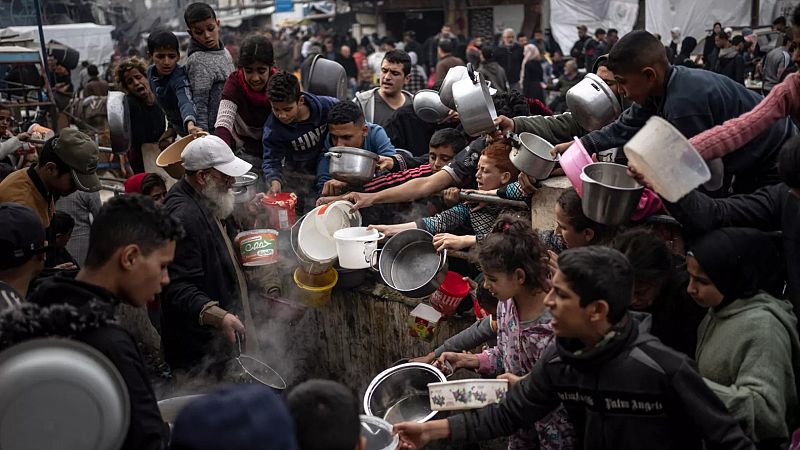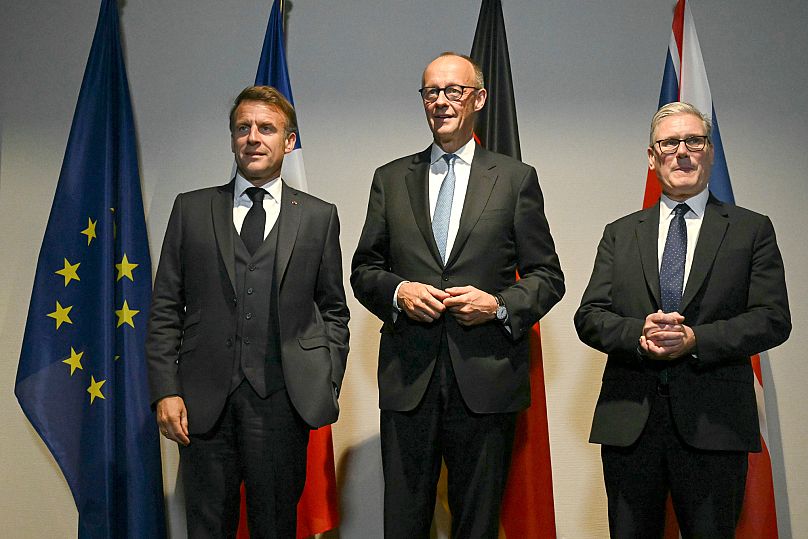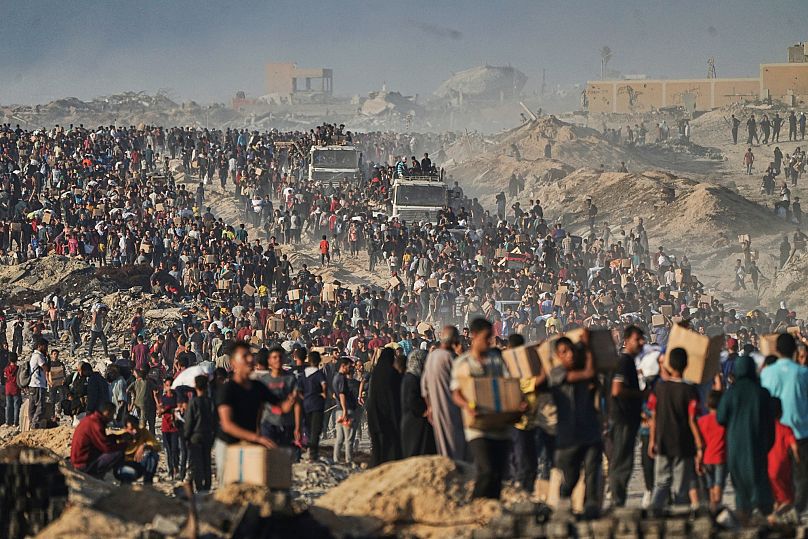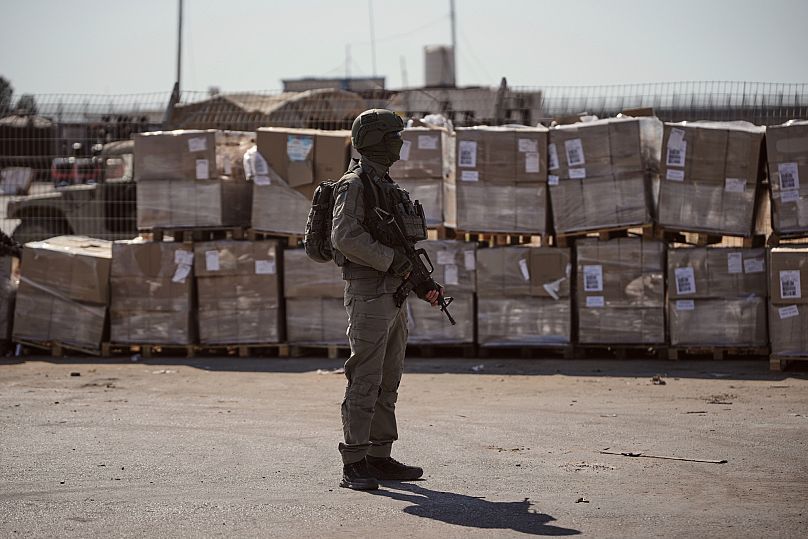
The leaders of France, Germany and the United Kingdom demanded Israel allow unrestricted aid into Gaza to end a "humanitarian catastrophe," on Friday, a day after French President Emmanuel Macron announced that his country will become the first major Western power to recognise a Palestinian state.
The joint statement, issued after a call between Macron, German Chancellor Friedrich Merz and British Prime Minister Keir Starmer called for an immediate ceasefire and said that "withholding essential humanitarian assistance to the civilian population is unacceptable," though it broke no new diplomatic ground.
The leaders said they "stand ready to take further action to support an immediate ceasefire and a political process that leads to lasting security and peace for Israelis, Palestinians and the entire region," but did not say what that action might be.

Exposing European divisions
Macron's surprise announcement on Thursday exposed differences among the European allies, known as the E3, over how to ease the worsening humanitarian crisis and end the Israel-Hamas war.
All three support a Palestinian state in principle, but Germany said it has no immediate plans to follow France’s step, which Macron plans to formalise at the United Nations General Assembly in September.
Britain has not followed suit either, but Starmer is under mounting pressure to formally recognise Palestinian statehood, both from opposition lawmakers and from members of his own Labour Party government.
Health Secretary Wes Streeting on Tuesday called for an announcement "while there's still a state of Palestine left to recognise."

On Friday, 221 of the 650 lawmakers in the House of Commons signed a letter urging Starmer to recognise a Palestinian state.
"Since 1980 we have backed a two-state solution. Such a recognition would give that position substance," said the letter, signed by legislators from several government and opposition parties.
After the E3 call on Friday, Starmer condemned "the continued captivity of hostages, the starvation and denial of humanitarian aid to the Palestinian people, the increasing violence from extremist settler groups, and Israel’s disproportionate military escalation in Gaza."
He said that "recognition of a Palestinian state" must be one of the steps on a pathway to peace.
"I am unequivocal about that. But it must be part of a wider plan which ultimately results in a two-state solution and lasting security for Palestinians and Israelis," he said.

More than 140 countries recognise a Palestinian state, including a dozen in Europe. But France is the first G7 country and the largest European nation to take that step.
Israel and the United States both denounced France's decision.
Britain has long supported the idea of an independent Palestinian state existing alongside Israel, but has said recognition should come as part of a negotiated two-state solution to the conflict.
Any such solution appears far off. There had been no substantive Israel-Palestinian negotiations for years even before the 7 October 2023 Hamas-led attack on Israel that sparked the current war.
Humanitarian crisis alarms Israel's allies
The worsening humanitarian crisis in Gaza, where hunger is spreading and children have starved to death, has caused alarm even among Israel’s closest allies.
Germany has traditionally been a particularly staunch ally of Israel in Europe, with relations rooted in the history of the Holocaust.
It says recognising a Palestinian state should be "one of the concluding steps" in negotiating a two-state solution and it "does not plan to recognise a Palestinian state in the short term."
But Berlin, too, has sharpened its tone recently, describing the Israeli military’s actions in Gaza as unacceptable and pushing for greater humanitarian aid, but still appears to favour trying to influence Israeli officials by direct contact.

The German government said in a statement on Friday that it is in a "constant exchange" with the Israeli government and other partners on issues that include a ceasefire in Gaza and the need to drastically improve humanitarian aid.
It said it is "prepared to increase the pressure" if there is no progress, but didn’t elaborate on how.
Britain has halted some arms sales to Israel, suspended free trade talks and sanctions far-right government ministers, but Starmer is under intense pressure to do more.







